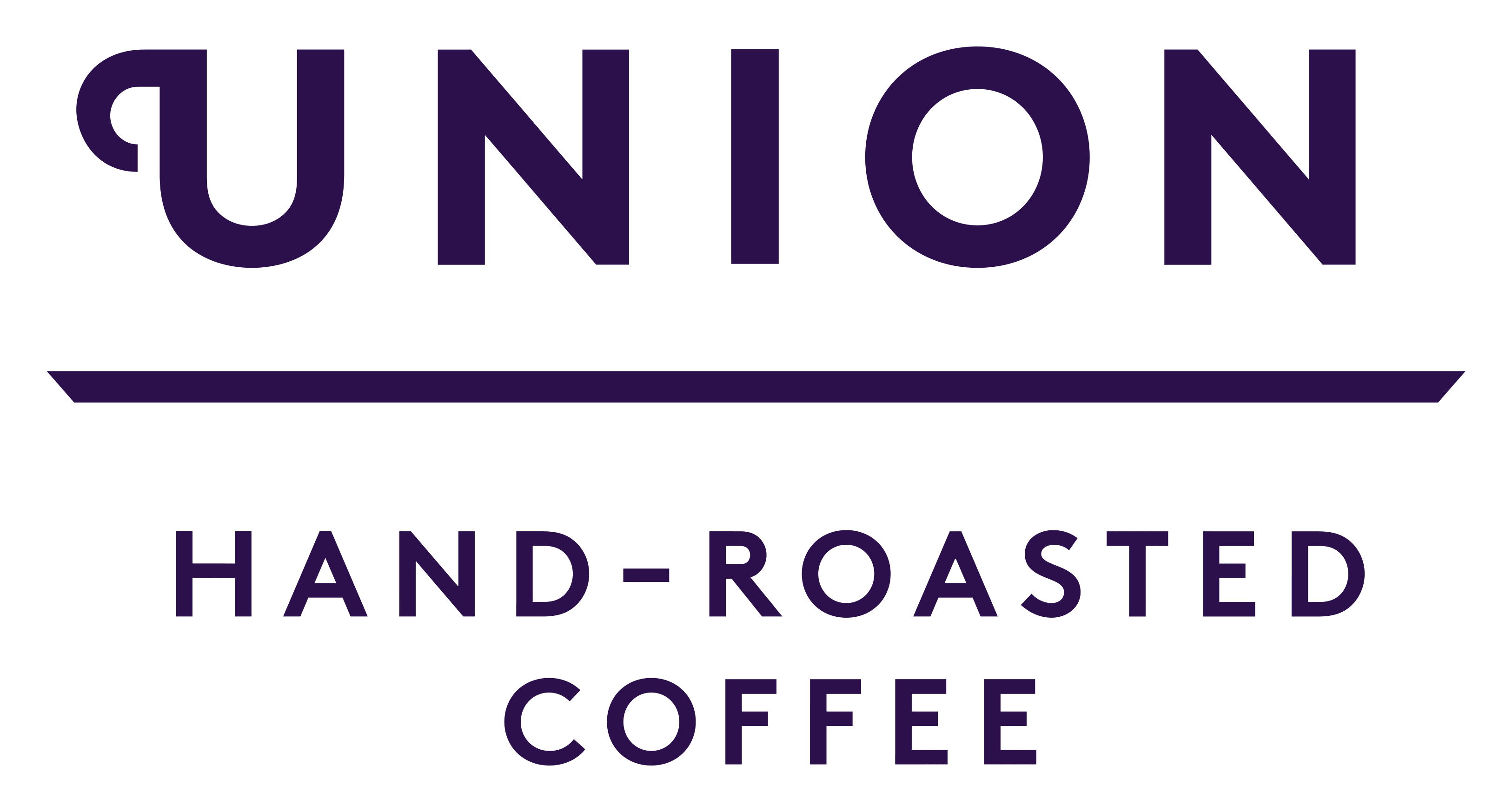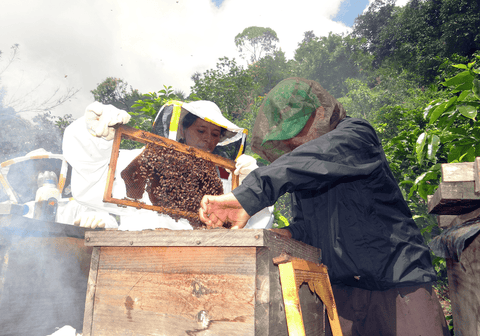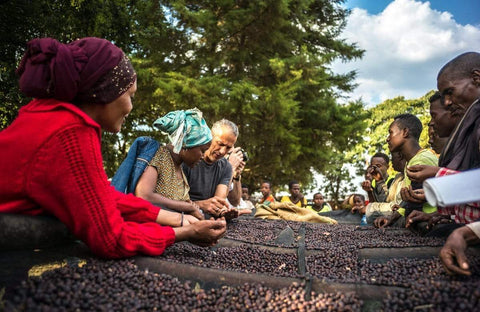The Union story wouldn't be complete without the Abahuzamugambi Ba Kawa Co-operative. We call them "Maraba", a name used both locally and internationally, after the original name of the area which is now called Huye. Being our longest standing partners dating back to 2003, they're integral to our journey. Maraba are also an inspiring example on the positive impact of our trading model, Union Direct Trade, and how it can create more sustainable livelihoods for coffee producers.

How did the partnership begin?
Rwanda is a small country in East Africa, known as "The Land of Thousand Hills" due to its mountainous and volcanic landscape. This, hand in hand with its warm climate (that gets plenty of rain!), makes it ideal for growing speciality coffee.
Due to the devastating genocide in 1994, the country was left with a population displaced and little to no infrastructure for schools, healthcare, business or farming.
In 2003, we teamed up with USAID and Comic Relief on a USAID-funded development project to improve the livelihoods of poor rural farmers through production of high-quality coffee following the genocide, and committed to be the programme’s first commercial partner.
This is when Maraba became part of the Union story, and we became part of theirs. We agreed to purchase 50 sacks of coffee (that's 3,000kg) from Maraba despite not having a customer. We took the chance on one another, and it paid off. 18 years later and we purchase between 600-1200 sacks of coffee every year, now including a number of different limited microlot parcels of coffee.

How has Maraba coffee changed over the years?
Union Direct Trade is about producers receiving sustainable prices for coffee to build viable livelihoods and have control over investments and development in their communities. We focus on coffee quality, over coffee quantity which means higher prices for producers, and great coffee for our customers to enjoy.
Previously in Maraba, farmers in different households would do their own post-harvest processing which resulted in different variables and defects in the coffee. The co-operative built a processing facility where farmers could deliver coffee cherries to be processed together for consistency which has helped increase the quality, and therefore price for the coffee.
Prior to working in Rwanda in 2003, the coffee did not meet the speciality threshold of 80 points. Working together, the score reached 80+ and we took our first shipment to sell as speciality. Through the developments at the co-operative and working together in our partnership, the quality of the coffee has remained high quality, over 84 points.
From 2010, we began sourcing even higher quality E lots (exceptional) of around 86+ from Maraba, prior to the first Rwanda Cup of Excellence. Today, they're referred to as microlots. In recent years, we've sourced numerous microlots from Maraba washing stations such as Cyarumbo. We were lucky enough to work with Maraba on their first ever natural processed coffee in 2019. Microlots are special, smaller lots of coffee which we pay an extra price premium for due to the quality and are a great means for producers to to receive higher prices.

What does this increase in coffee quality mean for Maraba?
Before our partnership, poverty levels were high and families could not afford to feed their children every day, or send all of them to school. Health within the communities was poor and nutrition levels were low. Housing was basic, with many homes being a single room with corrugated tin roofing; some with no furniture, meaning sleeping or sitting on dirt floors.
Our partnership with Maraba has helped to transform the co-operative and local area. We have been sourcing coffee from Maraba every year since 2003 and the price premiums for larger lots are ~ +40% above the Fairtrade minimum and microlots receive more than twice the Fairtrade minimum price.
The farmers at Maraba have been able grow and develop in the past 20 years, starting out with around 300 members in 2001 to over 1500 today. The premium we pay has contributed towards health insurance for co-operative members, advances for school fees, improved housing with hygienic flooring, tile roofing and furniture.
As sales of speciality coffee have increased incomes in the area, greater economic stability has contributed significantly towards community cohesion. This is particularly important as ethnic divisions were a factor in the conflict that led to the 1994 genocide.

Around 35% of the Maraba co-operative are women and gender equity is one of the key focuses. To strengthen the role of women within the co-operative, Maraba has supported forming women’s groups (there are now 23 groups in total). Each of these women has their own coffee farm and the women meet every month to work together. Each group has savings and credit fund which is used to help them resolve different problems that they are facing.
To prevent men selling their coffee through their wife to gain extra price premiums, Maraba funnel the premiums into the women's programmes to further promote gender equity.
There has been a transformation in Maraba. What was one of the poorest regions of Rwanda, now has growing economic stability, a bustling town and strong community spirit. The co-operative continue to develop not only with increasing coffee quality but pursuing different social projects, keeping the development of local area at the forefront.


